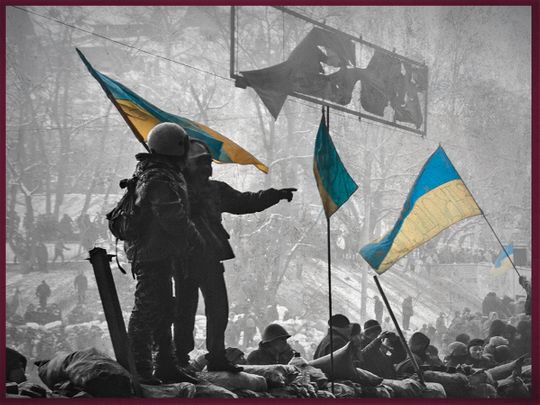
The Old Cold War, cold though it may have remained for 45 years, was nevertheless dangerous enough in and by itself, thank you very much. During it, the American-led democracies and the Soviet Union locked horns in struggle over global power and hegemonic domain in their respective spheres of influence, a war that at times, say during the Cuban Missile Crisis in 1962, brought the world to the edge of nuclear disaster.
Yet, mercifully, that war never did become truly hot, and it did not because it was characterised by avoidance, dictated by unwritten rules, of direct Soviet-Western military confrontation, allowing the rivalries between Moscow and Washington to play out via proxy wars, mostly in Third World countries that stretched all the way from Korea to Afghanistan and from Mozambique to South Vietnam.
True, those who lived the era, especially its early years, knew they lived in troubled, dangerous times, as the two superpowers strutted and fretted their hour upon the stage, so to speak, and at once threatened, dared and even teased each other.
Troubled, dangerous times indeed as Nikita Khrushchev told Western diplomats at a reception in Moscow in November 1956, “We shall be present at your funeral”, shocking his guests. (Though the translation of the phrase into English was given by the Russian leader’s own interpreter, alternative, and perhaps more accurate versions were proffered, like “We shall outlive you”.)
Hyped and crazy times
Also hyped and crazy times indeed when mass protests were being held in the US, from coast to coast, against the nuclear arms race by both the capitalist West and the communist East, which gave rise to the slogan “Better Red than dead”, meaning, of course, that it would be better to be controlled by a communist government than to be killed in a nuclear war, red being the emblem of the communist order. Not to be outdone, the cold warriors coined their own, albeit predictable slogan, “Better dead than Red”. (You couldn’t make this stuff up if you tried.)
Those were the days, my friend, and if you thought they’d never end, you were dead wrong.
They ended with the collapse of the Soviet Union three decades ago, the passing of the Old Cold War and the advent of the New World Order, where now the two sides confined their conflict to competition over economic, cultural and diplomatic spoils, learning all the while not to step on each other’s toes. Actually, at times their interests so converged that that they openly cooperated in the resolution of conflict in troubled spots around the world.
Things went so swimmingly that President George W. Bush was reported to have looked into his Russian counterpart’s soul, during a one-on-one conference, and saw his own reflected there. Things went swimmingly, that is, until they didn’t.
Like the Belle Époque in Europe between 1880 and 1914, a period characterised by regional peace, economic prosperity, scientific discovery and cultural innovation (and, Oh yes, lest we forget, colonial expansion) was shattered by the assassination of Archduke Ferdinant of Austria in June 1914 during his official visit to the Bosnian capital of Sarajevo, an event whose ripple effects triggered the outbreak of the First World war and brought to an end the Belle Époque (in French, the Beautiful Era), the Russian attack of Ukraine appears to have brought to an end the entente cordiale that had existed between Russia and the West over the last three decades.
A New Cold War
Now we have to reckon with a New Cold War.
Let’s remember that the United States and the Russian Federation today control 90 per cent of the world’s nuclear warheads, more than enough, at any rate, to obliterate most life on earth — plant, animal and human. And we know that Russia’s nuclear forces have already been put on full alert, forces that may well be used in the unlikely event the West were to intervene militarily in Ukraine, just as America’s own forces would be used in the unlikely event that a violation were to occur of Nato’s Article 5, which deems an attack one member of the alliance an attack on all.
This is a state of affairs not imagined by any of us since the darkest days of the Old Cold War. But perhaps we should not balk at imagining it.
We should not wonder, in other words, if perhaps Elise Sarrote, professor of history at Johns Hopkins University School of Advanced Studies here in Washington and renowned historian of the cold war who authored the book “Not One Inch: America, Russia and the making of the Post-Cold-War stalemate”, was being hyperbolic when she told ABC News late last week, “This is a major breaking point in history”.
In an op-ed piece she had written earlier in the New York Times she said that the conflict in Ukraine, “regardless of its outcome, portends [for the West] a new era of immense hostility with Moscow”, adding that “this New Cold War will be far worse than the first”.
As we speak, both sides continue to stand their ground.
The Western nations’ sweeping sanctions against Russia do not only remain in place but they are now tightened. Meanwhile President Putin claimed that those sanctions were “akin to an act of war”.
At the end of the day, whatever power prevails in Ukraine, Russia or the West, will find itself saddled with having to rebuild a shattered nation, in keeping with the rule, “You break it, you own it”. And rebuilding a nation’s infrastructure may be easy but rebuilding its national sensibility as to conform to yours is not.
All of which takes us back to the truth presented by this column last week — a truth so self-evident as to be yawn-inducing — that in war there no winners, just down-on-their-luck losers.
— Fawaz Turki is a noted thinker, academic and author based in Washington. He is the author of The Disinherited: Journal of a Palestinian Exile









